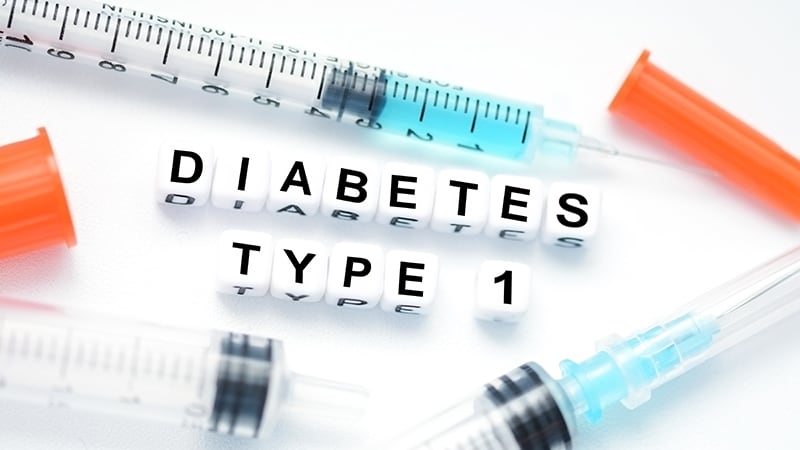This study was published on medRxiv.org as a preprint and has not yet been peer reviewed.
Key Takeaways
-
A review of about 1.8 million people living in Scotland during 2020-2021 showed no association between a SARS-CoV-2 infection that occurred more than 30 days previously with incident type 1 diabetes, both overall (full range of ages studies) as well as specifically in children less than 16 years old.
-
The estimated incidence of type 1 diabetes in children 0-14 years old in Scotland increased during 2020-2021 (during the COVID-19 pandemic) to about 1.2 times the average over the study period. However, in this age group type 1 diabetes incidence varies widely from year to year. For example, in 2019 the incidence rate was 10% below the long-term average incidence. The study found no evidence among people aged 15-34 years for increased type 1 diabetes incidence during 2020-2021 aside from the long-term upward trend in the incidence of type 1 diabetes.
-
The absence of any protection from COVID-19 vaccination against type 1 diabetes is further evidence against a causal effect of COVID-19 on type 1 diabetes.
Why This Matters
-
The results do not confirm an association of incident type 1 diabetes before age 18 years with SARS-CoV-2 infection more than 30 days prior, as previously reported by the US Centers for Disease Control and Prevention.
-
The authors say they know of no other reports that directly tested the association at the individual–patient level between SARS-CoV-2 infection with incident type 1 diabetes.
Study Design
-
The study included all 1.8 million Scottish residents in the REACT-SCOT study who at baseline were less than 35 years old and had not been diagnosed with diabetes. REACT-SCOT is a prospective database with nearly 4 million Scottish residents enrolled soon after the onset of the COVID-19 pandemic through November 2021 that includes all Scottish residents diagnosed with COVID-19.
-
The researchers ascertained incident cases of type 1 diabetes in Scotland from 2015-2021 based on date of diagnosis and type of diabetes as recorded by clinicians in the Scottish Care Information-Diabetes registry.
Key Results
-
The study included 365,080 people with a first detected SARS-CoV-2 infection between March 1, 2020 and November 22, 2021, which included 1074 people who developed incident type 1 diabetes during follow-up.
-
The hazard ratios for type 1 diabetes associated with prior SARS-CoV-2 infection were a significant 2.62 for infection in the prior 30 days, and an insignificant 0.88 for people infected more than 30 days previously. Among the subgroup of people younger than age 16, the corresponding rate ratios were a significant 3.15 when infection had occurred during the prior 30 days and an insignificant 0.81 when infection had occurred earlier than the prior 30 days.
-
A person’s vaccination status against SARS-CoV-2 was not associated with incidence of type 1 diabetes
Limitations
-
The number of incident cases of type 1 diabetes in people exposed to SARS-CoV-2 infection were relatively small, so the researchers modeled the hazard ratio using the relatively broad categories of 0-30 and more than 30 days for the exposure period. However, clustering of negative and positive tests around the date of diagnosis is obvious in the data.
-
Until mass testing for SARS-CoV-2 began in late 2020, most infections in younger people went undetected However, estimates place the cumulative incidence of infection in UK children age 5-14 years at about 15% up to late 2020, so misclassification of exposed individuals as unexposed would only slightly reduce the rate ratios for type 1 diabetes associated with detected infection in this age group.
Disclosures
-
The study received no commercial funding.
-
None of the authors had relevant disclosures.
This is a summary of a preprint research study, “Relation of incident Type 1 diabetes to recent COVID-19 infection: cohort study using e-health record linkage in Scotland ,” written by researchers from Edinburgh and Glasgow, United Kingdom, on medRxiv provided to you by Medscape. This study has not yet been peer reviewed. The full text of the study can be found on medRxiv.org.
For more Medscape Diabetes and Endocrinology news, follow us on Twitter and Facebook
Source: Read Full Article
